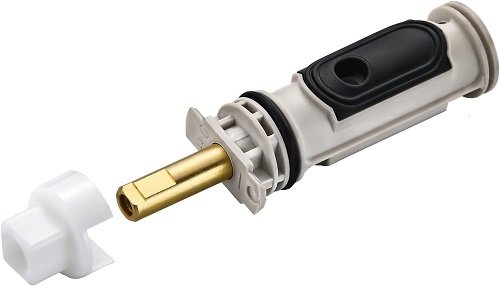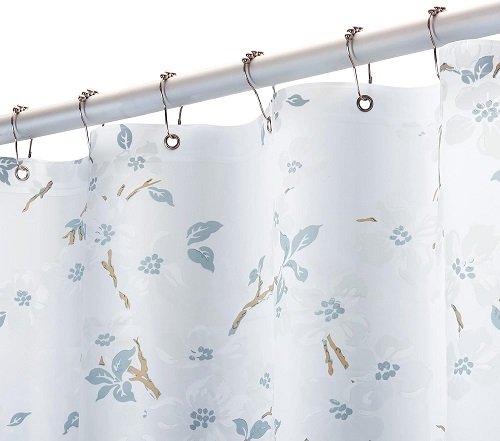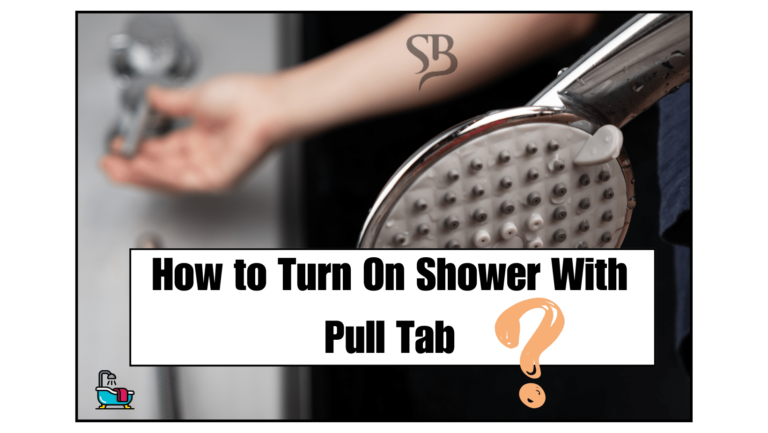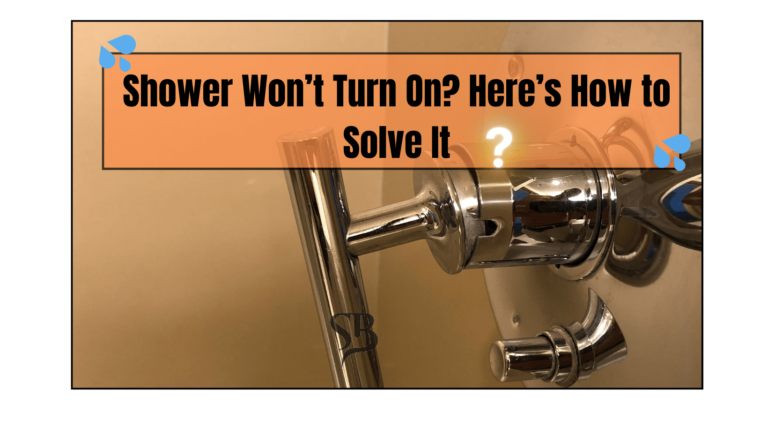Your daily shower is a moment of relaxation and refreshment, and shower valves and cartridges are the unsung heroes that make this experience possible. These essential components control the flow and temperature of water, ensuring you get the perfect shower every time.
However, like any mechanical device, shower valves and cartridges have a finite lifespan and may require maintenance or replacement over time. But how long do shower valves and cartridges last?
The lifespan of shower valves and cartridges can vary widely depending on factors like quality, water hardness, usage, maintenance, and installation.
On average, they typically last between 10 to 20 years, but their durability can extend beyond or fall short of this range. Regular maintenance, choosing high-quality materials, addressing water quality issues, and professional installation can all contribute to prolonging their lifespan, while neglect and poor water conditions may lead to premature failure.
If you notice any signs of wear or malfunction, it’s advisable to seek professional assistance to assess and replace these components as needed to avoid potential water damage and maintain shower functionality.
What Are Shower Valves and Cartridges?
To truly appreciate the significance of shower valves and cartridges, it’s crucial to understand their roles in your shower system.
The shower valve is the primary control responsible for diverting water between different outlets, such as a showerhead, handheld shower, or body jets. It also regulates water pressure and temperature.
On the other hand, the cartridge is a small inner component that sits within the valve and controls the mix of hot and cold water to achieve the desired temperature. Together, these components ensure a seamless and comfortable showering experience.

Factors Affecting the Lifespan of Shower Valves and Cartridges
Various factors can impact the longevity of shower valves and cartridges. Being aware of these factors can help you take preventive measures to maximize their lifespan and reduce the likelihood of sudden malfunctions.
a) Water Quality
Water quality is a significant determinant of how long your shower valves and cartridges will last. Hard water, which contains high levels of minerals like calcium and magnesium, can cause mineral buildup within the components.
Over time, this buildup can obstruct water flow, corrode the valve or cartridge, and ultimately lead to failure.
Solution: If you have hard water, consider installing a water softener or using a showerhead filter to reduce mineral deposits and protect your valves and cartridges.
Regularly descaling the components can also help prevent mineral buildup.
b) Maintenance and Cleaning
Regular maintenance and cleaning are essential for extending the lifespan of your shower valves and cartridges. Over time, soap scum, dirt, and mineral deposits can accumulate, causing the valves to become stiff or the cartridges to malfunction. Failure to clean and maintain these components can lead to leaks and reduced performance.
Solution: Clean your showerhead and valves regularly by soaking them in a vinegar solution to remove mineral deposits and grime. Additionally, lubricate the valves periodically to ensure smooth operation. Be gentle when cleaning to avoid damaging any sensitive parts.
c) Material Quality
The material quality of your shower valves and cartridges directly affects their durability. High-quality materials, such as brass or stainless steel, are more resistant to corrosion and wear, providing a longer lifespan.
Solution: Invest in shower valves and cartridges made from durable materials. While they may come at a higher upfront cost, their long-term performance and resistance to deterioration make them a worthwhile investment.
d) Water Pressure
Excessive water pressure can put unnecessary strain on your shower valves and cartridges, leading to premature wear and failure.
Solution: Install a pressure reducing valve (PRV) to regulate water pressure and protect your shower components. If you already have a PRV, make sure it is functioning correctly and set at an appropriate pressure level.
e) Frequency of Use
The frequency of showers and the number of family members using the shower also influence the wear and tear experienced by the valves and cartridges.
Solution: While it’s challenging to control the frequency of showers, proper maintenance and timely replacements can offset the effects of frequent use.

The Average Lifespan of Shower Valves and Cartridges
While the lifespan of shower valves and cartridges can vary based on the factors mentioned above, on average, they are expected to last:
- Shower Valves: The average lifespan of a shower valve is around 10 to 20 years. However, this can be shorter in areas with hard water or inadequate maintenance.
- Cartridges: Cartridges typically have a lifespan of 5 to 10 years. The frequency of use and water quality can affect their longevity.
Signs of Wear and When to Replace
Recognizing the signs of wear and tear in your shower valves and cartridges is essential to address issues promptly and avoid unexpected malfunctions and water leaks. Here are some indicators that it’s time for a replacement:
- Leaks: If you notice water dripping from the showerhead or the handle, it may indicate a faulty cartridge or worn-out seals within the valve.
- Temperature Fluctuations: Inconsistent water temperature during your shower can be a sign of a failing cartridge that is unable to balance hot and cold water properly.
- Reduced Water Pressure: A decrease in water pressure can be caused by mineral buildup or sediment accumulation in the valve or cartridge.
- Difficulty in Operation: If you find it challenging to turn the shower handle or adjust the temperature, it may be time to replace the valve or cartridge.
- Strange Noises: Unusual sounds, such as banging or screeching, may indicate that your valves or cartridges are worn out or damaged.
Solution: If you notice any of these signs, consult a professional plumber to assess the issue and replace the faulty components promptly. Ignoring these problems can lead to more significant damage and costly repairs.

Extending the Lifespan of Shower Valves and Cartridges
To prolong the life of your shower valves and cartridges and reduce the frequency of replacements, consider adopting the following practical measures:
- Install a Pressure Reducing Valve (PRV): If your home has high water pressure, consider installing a PRV to reduce the strain on the shower valves and cartridges. This will help prevent premature wear and tear.
- Use a Water Softener: Implementing a water softening system is beneficial for protecting your shower components and plumbing from mineral deposits. Soft water is gentler on the valves and cartridges, extending their lifespan.
- Regular Maintenance: Perform routine maintenance tasks, such as cleaning and lubricating, to keep your valves and cartridges in optimal condition. Follow the manufacturer’s guidelines for maintenance to ensure you don’t void any warranties.
- Replace Seals and O-Rings: Periodically check and replace worn-out seals and O-rings to prevent leaks and maintain proper water flow. These inexpensive components can significantly impact the performance of your shower system.
- Address Leaks Promptly: If you notice any leaks, address them promptly to avoid water damage and further deterioration of your shower components. Even small leaks can lead to significant water wastage and increase your water bill.
- Professional Inspections: Schedule regular inspections by a professional plumber to assess the condition of your shower valves and cartridges. They can identify any potential issues early on and recommend appropriate solutions.
Conclusion
The average lifespan of shower valves and cartridges is influenced by water quality, maintenance, material quality, water pressure, and frequency of use.
By taking proactive measures to improve water quality, performing regular maintenance, and addressing issues promptly, you can extend the longevity of these components.
Keeping an eye out for signs of wear and tear and knowing when to replace the valves and cartridges will ensure a reliable and comfortable showering experience for years to come.
Remember to consult a professional plumber for any major repairs or replacements to maintain the integrity of your shower system. With proper care and attention, you can enjoy many years of uninterrupted and enjoyable showers.







